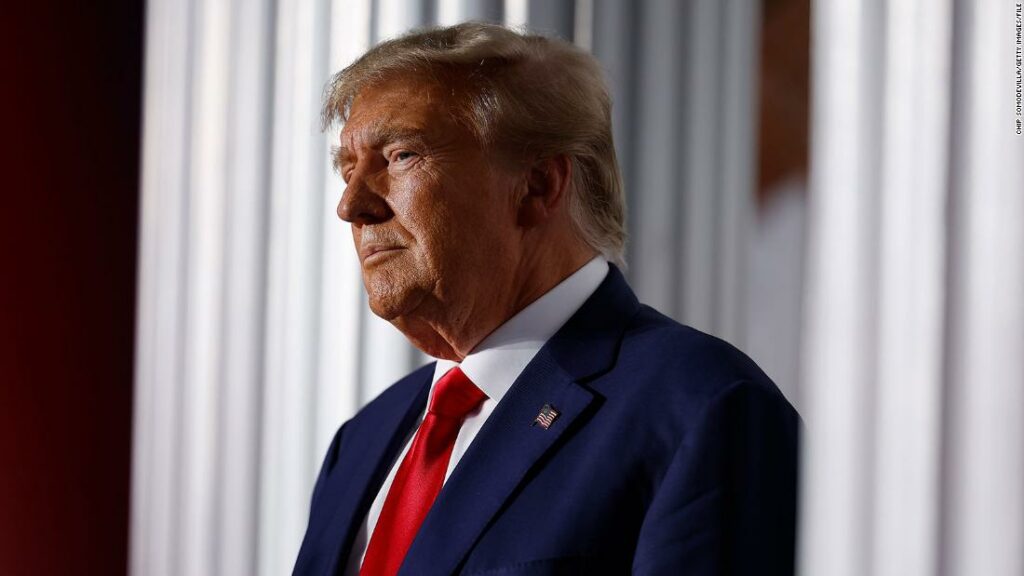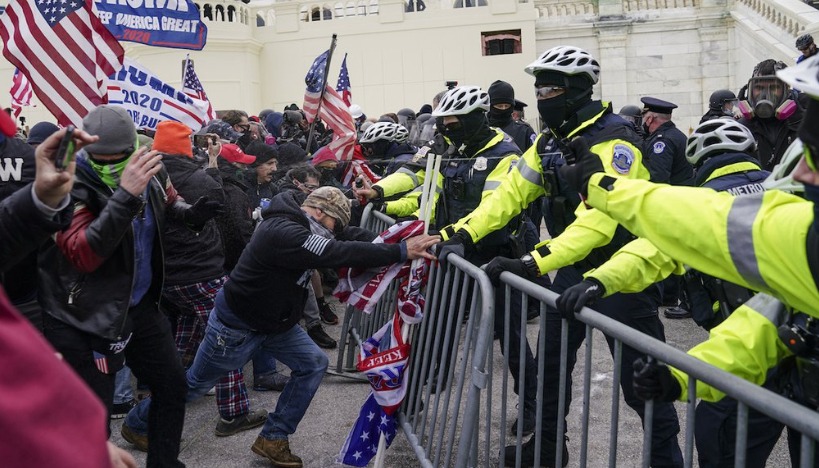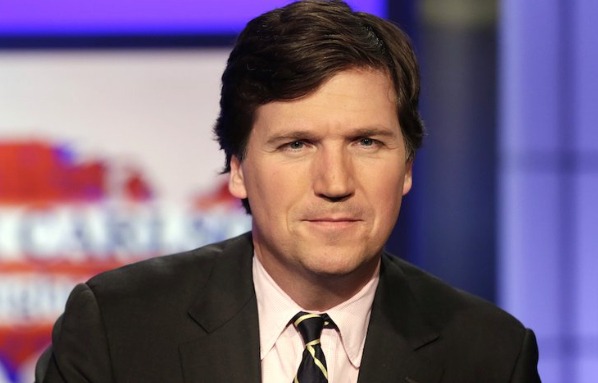Dissent Among 2024 GOP Presidential Candidates as Trump Faces Criminal Investigation
Former President Donald Trump’s revelation that he is a target of the criminal investigation into efforts to overturn the 2020 election has sparked a wave of dissent among the 2024 GOP presidential candidates. As the implications of this investigation become clearer, prominent figures within the party are speaking out.
Former Vice President Mike Pence, in an interview with NewsNation, expressed his hope that Trump would not be indicted a third time. Pence believes that the former president’s actions on January 6 should be judged by the American people, rather than through criminal charges.
Former Arkansas Gov. Asa Hutchinson, a former federal prosecutor, has been vocal about his belief that Trump’s actions on January 6 disqualify him from ever being President again. Hutchinson emphasizes the severity of Grand Jury investigations and the significance of being targeted by one. He argues that Trump’s confirmation of being a target in this investigation will likely lead to another indictment. Hutchinson calls for any candidate who truly loves the country to suspend their campaign for President immediately, as a show of putting the country over personal ambitions.
Florida Gov. Ron DeSantis hopes that Trump will not face charges, as he believes it would not be good for the country. However, DeSantis also emphasizes the need to look forward and focus on the future. He criticizes the attempt to criminalize politics and differences, pointing to the politicization of institutions like the FBI and Department of Justice.
Former UN Ambassador Nikki Haley, in an interview with Fox News, expresses her frustration with the ongoing drama surrounding Trump. She believes that the rest of the primary election will revolve around Trump, lawsuits, legal fees, and judges, which she sees as distractions. Haley emphasizes the need for a new generational leader who can move beyond this drama and negativity.
Chris Christie, a former prosecutor, wants to see any potential indictment before discussing the case against Trump. However, he makes it clear that Trump’s conduct on January 6th demonstrates a lack of care for the country and the Constitution.
Will Hurd, a former congressman, describes January 6th as a dark day for democracy. He believes that Trump’s inaction during that time, coupled with being a target in the investigation, proves that he is unfit for office. Hurd emphasizes the importance of leaders who prioritize the Constitution and the American people.
Vivek Ramaswamy, a prominent figure, highlights the significance of this indictment. He points out that it is a federal indictment, like the previous one in the documents case. However, what sets this one apart is that it falls under section three of the 14th amendment, which could potentially disqualify Trump from running for US president or even being removed as president if elected. Ramaswamy warns that this sets a dangerous precedent for the country.
As the 2024 GOP presidential race heats up, the implications of Trump’s criminal investigation are becoming a central focus. Prominent figures within the party are expressing their concerns and opinions on the matter. The outcome of this investigation could have far-reaching consequences for the future of the Republican Party and the country as a whole.
(Note: This report was contributed to by CNN’s Veronica Stracqualursi, Steve Contorno, and Kit Maher.)
Unveiling the January 6 Probe: Trump’s Target Letter Revealed
In a significant development surrounding the investigation into the events of January 6, 2021, a target letter sent to former President Donald Trump has been unveiled. This revelation has sparked intense speculation and debate, as it sheds light on the focus and direction of the ongoing probe. The contents of this letter, which was sent by the House Select Committee investigating the Capitol attack, have now become a focal point in the quest for justice and accountability.
The target letter, a formal communication sent by prosecutors to individuals under investigation, outlines the specific allegations and potential charges against the recipient. It serves as a crucial step in the legal process, providing the individual with an opportunity to respond and present their case. In the case of Donald Trump, this letter signifies that he is a central figure in the investigation and may face potential legal consequences for his alleged role in the events of January 6.
While the exact details of the target letter remain undisclosed to the public, reports suggest that it accuses Trump of multiple offenses, including incitement of insurrection, obstruction of justice, and abuse of power. These allegations stem from his actions and rhetoric leading up to and during the storming of the United States Capitol by a mob of his supporters. The letter likely highlights specific instances where Trump’s words and actions may have contributed to the escalation of violence and the endangerment of elected officials and law enforcement personnel.
The revelation of the target letter has ignited a flurry of reactions from both sides of the political spectrum. Supporters of the former president argue that this is a politically motivated witch hunt, aimed at tarnishing Trump’s legacy and undermining his influence. They contend that the investigation is an attempt by Democrats to settle political scores and distract from other pressing issues facing the nation.
On the other hand, proponents of the probe assert that it is a necessary step towards upholding the rule of law and ensuring accountability for those responsible for the attack on the Capitol. They argue that the events of January 6 were an assault on the very foundations of democracy and that no individual, regardless of their position or influence, should be above the law. They view the target letter as a significant development in the pursuit of justice and a crucial step towards uncovering the truth behind the attack.
The release of the target letter also raises questions about the potential legal implications for Trump. If the allegations against him are substantiated, he could face criminal charges, which may carry severe penalties, including imprisonment. However, it is important to note that the target letter does not automatically imply guilt, but rather signifies that the individual is under investigation and will have an opportunity to present their defense.
As the investigation progresses, it is expected that the target letter will serve as a guiding document for the House Select Committee, shaping their approach and determining the scope of their inquiry. It will likely be used to gather evidence, interview witnesses, and build a comprehensive case against those involved in the events of January 6. The unveiling of this letter marks a significant milestone in the pursuit of justice and accountability, as it brings the investigation closer to its ultimate goal of uncovering the truth and holding responsible parties to account.
In conclusion, the revelation of the target letter sent to former President Donald Trump by the House Select Committee investigating the events of January 6 has sparked intense speculation and debate. This letter signifies Trump’s central role in the investigation and outlines the specific allegations and potential charges against him. It has become a focal point in the quest for justice and accountability, with supporters and opponents of the probe offering contrasting views on its significance. As the investigation progresses, the target letter will serve as a guiding document, shaping the committee’s approach and determining the course of action. Ultimately, the unveiling of this letter represents a crucial step towards uncovering the truth and ensuring accountability for the attack on the Capitol.








